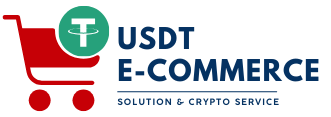## Introduction
In the age of digitalization, privacy protection has become one of the most important issues for users. Whether for daily consumption, online shopping, or using cloud services, the security of personal data is facing challenges. As an effective way to protect privacy, anonymous payment is becoming more and more important. In this article, we will discuss why we choose anonymous payments and analyze the privacy considerations in cloud services, helping you understand how to better protect your personal data while enjoying a convenient digital life.
## Main unit
### 1. Advantages of anonymous payments
Anonymous payments are more than just a payment method; they are a privacy strategy. Here are some of the advantages of anonymous payments:
##### 1.1 Protection of personal data
In traditional payment methods, user's personal information (such as name, address, bank card number, etc.) can be easily recorded and tracked. Anonymous payment, however, ensures data security during the transaction process through encryption technology and virtual currency (e.g. USDT) to avoid leakage of personal information.
##### 1.2 Prevention of Data Abuse
Many platforms collect payment data from users for advertising or other commercial purposes. Anonymous payments can effectively prevent such data abuse and give users more control over their data.
##### 1.3 Suitable for a wide range of scenarios
Whether you're shopping online, subscribing to a service, or purchasing cloud services, anonymous payments are the way to go. For example, using USDT to pay for cloud services is not only fast and convenient, but also ensures privacy and security.
### 2. Privacy Challenges in Cloud Services
As a core tool for modern data storage, cloud services offer convenience but also bring privacy risks. The following are common privacy challenges in cloud services:
##### 2.1 Security of Data Storage
Many cloud service providers store user data on remote servers, which means the data may be at risk of being hacked or compromised by insiders.
####2.2 Data Tracking and Analysis
Cloud service providers may track user behavior and use this data for business analysis or advertising purposes. Such behavior may violate the user's privacy.
####2.3 Legal and Regulatory Risks
Different countries and regions have different legal requirements for data privacy, and user data may be subject to mandatory disclosure or censorship due to legal issues.
### 3. How to choose the right anonymous payment and cloud service
To better protect privacy, users should pay attention to the following points when choosing anonymous payment and cloud services:
##### 3.1 Selection of platforms that support anonymous payments
Many platforms have started to support anonymous payment methods such as USDT, cryptocurrencies, and others. Choosing these platforms ensures privacy and security during transactions.
##### 3.2 Understanding the Cloud Service Provider's Privacy Policy
When choosing a cloud service, you should carefully read its privacy policy to ensure that the provider does not misuse or disclose user data.
##### 3.3 Using encryption techniques
Whether it's payment or data storage, encryption is the key to protecting your privacy. By choosing a cloud service that supports end-to-end encryption, you can effectively prevent data theft.
### 4. Future Trends in Anonymous Payments and Cloud Services
With the increasing awareness of privacy protection, the combination of anonymous payments and cloud services will become a mainstream trend in the future. Here are a few points of interest:
##### 4.1 Application of Blockchain Technology
Blockchain technology provides higher security for anonymous payments and cloud services with its decentralized and tamper-proof nature. In the future, more platforms will adopt blockchain technology to protect user privacy.
##### 4.2 Improvements to the Privacy Protection Statute
As countries emphasize privacy protection, relevant regulations will become more comprehensive. This will motivate cloud service providers to improve privacy protection measures and provide more secure services to users.
#### 4.3 User Education and Awareness Raising
In the future, users' awareness of privacy protection will further increase, which will lead to more platforms offering anonymous payment and privacy protection features.
## Frequently Asked Questions (FAQ)
### Q1: Is anonymous payment legal?
A1: Anonymous payments are legal in their own right, but the specific legality depends on the laws of the country or region where they are made. It is recommended to understand the relevant laws and regulations before use.
### Q2: Will using anonymous payment affect the transaction speed?
A2: Anonymous payments are often encrypted, which may slightly affect the speed of the transaction, but most platforms have optimized their processes to ensure that transactions are completed quickly.
### Q3: How to ensure the data security of cloud services?
A3: Choosing a cloud service provider that supports encryption technology and backing up your data on a regular basis can effectively enhance data security.
### Q4: Is Anonymous Payment available on all platforms?
A4: Not all platforms support anonymous payments. It is recommended to check whether the platform supports the relevant payment method before use.
## Conclusion
In the age of digitalization, privacy protection has become an issue of concern for every user. Anonymous payment provides users with higher privacy security by protecting personal data and preventing data abuse. As a core tool for data storage, cloud services also require users to choose carefully to ensure data security. In the future, as technology advances and regulations improve, the combination of anonymous payments and cloud services will provide users with a safer and more convenient digital life experience.
If you are looking for reliable anonymous payment and cloud service solutions, feel free to contact us and we will provide you with professional services to ensure your privacy is safe and secure. Take action now for a safer digital life!
